A ‘holiday’ today means is a specific trip or journey, usually for the purpose of recreation or tourism. But the concept of taking a vacation is a recent invention, and has developed through the last two centuries. Historically, the idea of travel for recreation was a luxury only wealthy people could afford.
Ancient Romans travelled in their ordinary lives – a lot – as did their goods. Soldiers of all ranks were posted to frontiers of Empire; traders traded on sea, in desert cities, on rivers and across land; civil servants on the cursus honorum professional path to fame and riches (they hoped) went off to Baetica, Illyria, Britannia, Noricum or Antioch on government jobs; rich young men were sent to Athens to complete their education. Roman women often travelled with their husbands and fathers when the latter were posted abroad, which could be for years at a time, although many did stay in Rome.
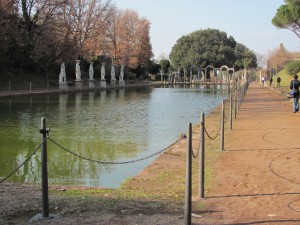
Hadrian’s villa garden. Canopus, designed to recall the Canopus canal, an arm of the Nile River between Alexandria and Abukir.
In summer, the Roman elite would take to the hills e.g. Hadrian’s villa at Tivoli, or the Bay of Neapolis. Many went to their estate or farm in the countryside to escape the heat, smells and disease of Rome in the summer. The poor and slaves didn’t have the option unless their employer or master took them along.
But glimmerings of an early tourist trade appeared when Augustus had rid the Mediterranean of pirates, highways were relatively safe for travel, and inns and guides could be found throughout the ancient world’s wonders. Result? Exploration of Italy, Greece, Asia Minor and Egypt became possible for the first time.
Wealthier members of society who were educated and sophisticated could travel in groups to visit the great wonders of history and myths they’d read about all their lives. Greece was the favourite destination, particularly Athens where Socrates lived and Plato debated; the Parthenon on the Acropolis was compulsory! And who didn’t want to hear what the oracle at Delphi has to say about your future life?
Asia Minor (roughly modern Turkey) was one of the wealthiest provinces in the empire – all the great spas were there. But the main attraction was a visit the ruins of Troy (Illium). Quite how genuine an experience it was is questionable. No doubt there were rip-off merchants selling Achilles’ shield, showing them Hector’s sword or pointing out the graves of the various heroes. (Yeah, right)
And no trip was complete without a visit to the pyramids in that exotic and louche country, Egypt, the bridge between Europe, Africa and Asia. And our travellers would bring back souvenirs: statues, fabrics, scrolls of poetry and the odd unmentionable disease. These ‘holidays’ could take up to two years, if you threw in a visit to Petra and Palmyra. A possible parallel is the Grand Tour undertaken by young aristocrats in the 18th and 19th centuries.
But these trips weren’t the rather romantic individual experiences of seeing the wonders of the world in a dreamy and uplifting cloud as the later poets would have us believe. The Romans inhabited a busy, multi-layered and connected world. Going to the Olympic games in Greece was uncomfortable and crowded, and everyone collapsed from heat exhaustion, but they put up with it because it was an amazing spectacle. And they were used to the noise, bustle and smell of feast/games days back home in Rome.
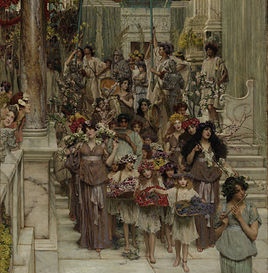 Most people’s break from the routine centred on the many feast days celebrating one or other of the gods, the emperor’s birthday, a victory – any excuse, really. During the rule of Claudius, 159 days in the year were designated public holidays, on 93 of which spectacles and games were offered at public expense. Originally, games had religious significance, but under the republic more and more secular games were introduced, some of which lasted as long as a fortnight.
Most people’s break from the routine centred on the many feast days celebrating one or other of the gods, the emperor’s birthday, a victory – any excuse, really. During the rule of Claudius, 159 days in the year were designated public holidays, on 93 of which spectacles and games were offered at public expense. Originally, games had religious significance, but under the republic more and more secular games were introduced, some of which lasted as long as a fortnight.
Pretty exhausting all in all. But which is better, going on a holiday overseas with all the excitement, wonder and whiff of danger or on-going days off throughout the year with free public entertainment at home?
Updated April 2017:
Alison Morton is the author of Roma Nova thrillers INCEPTIO, PERFIDITAS, SUCCESSIO, AURELIA and INSURRECTIO. The sixth, RETALIO, came out on 27 April 2017. Audiobooks now available for the first four of the series
Get INCEPTIO, the series starter, for FREE when you sign up to Alison’s free monthly email newsletter. You’ll also be first to know about Roma Nova news and book progress before everybody else, and take part in giveaways.




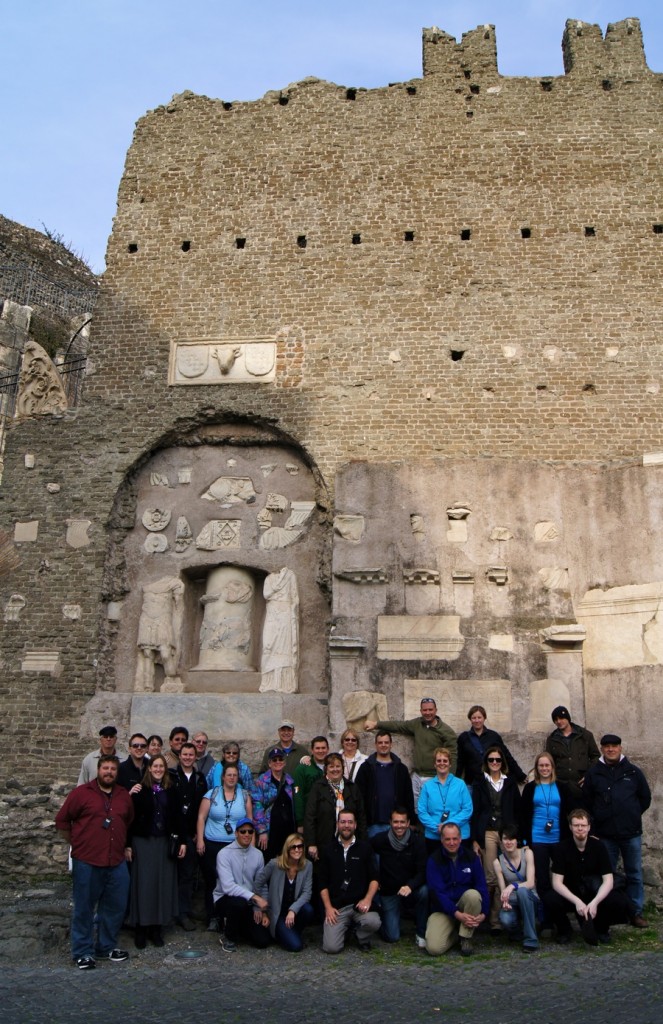
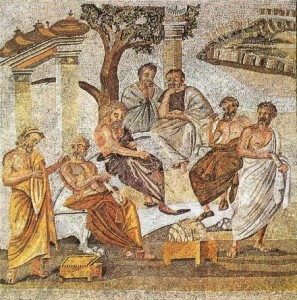
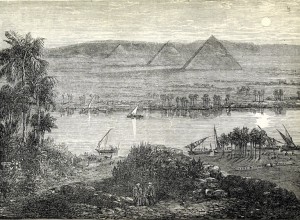









That’s a tough choice! May I have both, please?
Wouldn’t that be lovely?
Well, these days we can make the best of summer weekends as well as our annual vacation. 😉